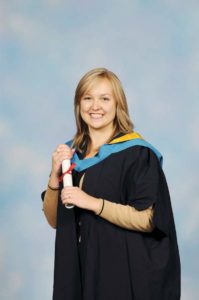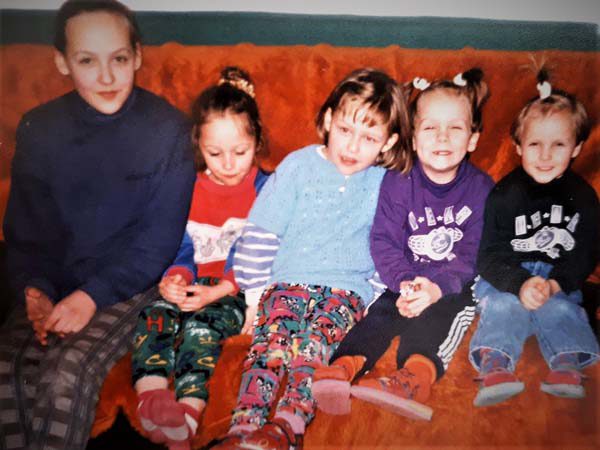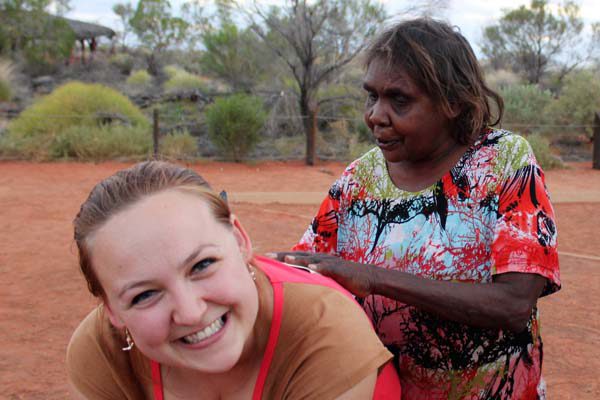I’m very excited that I’ll soon start a new job in the Southampton County Court, dealing with civil matters. I’m really proud to have got this job, as in some ways it can hold you back in your mind to think you’re from another country, competing against British people for jobs – says Agnieszka Fularska, a translator and an interpreter in an interview with Brin Best.
What was your childhood like in Poland?
“I was brought up in the village of Opatkowice, about 30 km north-east of Kraków. It was a lovely place to grow up – a rural area with farms and pretty countryside. Plus we had historic Kraków on our doorstep.”
How did your long interest in English first develop?
“English was my favourite and most important subject at school. I was fascinated by all English-speaking countries, and understood the potential to use their geography, history and so on to learn about the language itself. At university it was therefore a natural choice for me to study English. I specialised in studying English as a foreign language in Sucha Beskidzka, a town in the Beskid Zywiecki mountain range of southern Poland. The teacher training college situated there is a satellite institution of Kraków’s Jagiellonian University.”
When was your first contact with the UK?
“I became aware, during my first term at university, that a lot of my friends and people in my home area were moving to the UK. So I decided in late 2004, age 19, to visit the UK and headed to Southampton, where many of my friends had already settled. This started off a chain reaction that would eventually see me moving to the UK, where I’ve lived for the last 12 years.
I first decided to take a gap year from my university course in Poland. So on the symbolically significant date of 21 January (2005) – my name day – I moved to Southampton, for what was just going to be a 12-month stay. My parents weren’t happy about my decision, and really wanted me to complete my course at what is a prestigious Polish university. They also thought I wouldn’t be able to find a job in the UK. But I began gaining qualifications in English, and several other areas, to help me with my career prospects, and I was determined to make things work.”
What was your first job here?
“Happily, I was able to find a job almost straight away as a Probate Officer in Winchester, which is 20 km from Southampton. And I’m still working in the same office all these years later! I progressed from being a casual employee to a more permanent and senior member of staff. I’m now the Administration Officer, and also gained the extra responsibility of being a Commissioner for Oaths. Much of my time in the Probate Office is spent looking at important legal documents linked to people’s wills and related matters. It’s very technical but rewarding work, and I even sometimes have to correct solicitors’ writing.”
In addition to your work in the Probate Office you teach English as a second language. When did your interest in teaching begin?
“My interest in teaching goes a long way back. In fact, I’ve always known that I wanted to teach, and I have many teachers in my family, including my mum, my grandmother and grandfather.
 I started learning English at age five, with the help of some cassette tapes my dad had picked up in Chicago, where he worked for 18 months in the late 1980s. I went on to have a real passion for English at school and my dad, who speaks only basic English, was really keen for me to teach my little sister Dominika to speak the language too (she’s seven years younger than me). So he used to pay me in pocket money to teach her, and I even made my sister a little diploma when she succeeded in my ‘class’!
I started learning English at age five, with the help of some cassette tapes my dad had picked up in Chicago, where he worked for 18 months in the late 1980s. I went on to have a real passion for English at school and my dad, who speaks only basic English, was really keen for me to teach my little sister Dominika to speak the language too (she’s seven years younger than me). So he used to pay me in pocket money to teach her, and I even made my sister a little diploma when she succeeded in my ‘class’!
Although Dominika was my first student I also went on to teach seven other cousins, and used to set up a tiny ‘classroom’ at home. I was already in my element at age 12! At this stage I concentrated on simple games for my young students, for example working on the words for fruits and colours, and tried to keep things as fun as possible.
After I moved to the UK I began teaching English informally to friends. I then gained additional qualifications in teaching English, and other areas, which culminated in a Bachelors Degree in Humanities with English Language, and a Masters degree in Education with Applied Linguistics from the Open University. These extra qualifications allowed me to formalise my English language teaching and take on numerous private students at evenings and weekends. Many of these students have subsequently become friends. My English teaching has also brought the extra benefit of helping me to develop self-discipline outside work.”
Have you been welcomed here by British people?
“Generally I’ve found people to be really friendly and welcoming. I did experience an unpleasant incident at work, when a member of the public came in and, after asking where I was from, queried why I wasn’t a cleaner! But mostly I’m treated like I really belong here.”
You are very busy with two jobs. Do you have time for any hobbies or interests?
“I have a lovely West Highland white terrier called Yeti, and I love to take him out for walks, often meeting other dogs and their owners, who we’ve got to know. My British friends have encouraged me to make the most of weekends to do things for myself, and I’ve got better at switching off and enjoying myself. I also love travelling, and have visited many European countries, plus Australia and Singapore. Finally, I also try hard to develop myself in all sorts of ways in my spare time.”
Did the Brexit vote change how you felt about living in the UK?
“It helped me decide to take British citizenship, and my application is now at an advanced stage. I realised this would help me feel more secure here, as well as enabling me to travel more widely across the world.”
What are your plans and hopes for the future?
“I’m very excited that I’ll soon start a new job in the Southampton County Court, dealing with civil matters linked to money claims, housing possession and bankruptcy. I’ll be able to walk to work, which I’m really looking forward to after commuting by train for many years. I’m really proud to have got this job, as in some ways it can hold you back in your mind to think you’re from another country, competing against British people for jobs.
I will continue to combine my work within the legal system with teaching English. I also plan to take things to the next level with my languages by gaining additional qualifications in interpreting in the UK, and in the highly technical area of sworn translation in Poland.
I hope that the important messages about Polish-British friendship and cooperation continue to be spread. Additionally, I would like British people to know that Poles do important jobs here and work very hard.”
FIND OUT MORE
More information about Agnieszka’s English language teaching can be found on her Facebook page Agnieszka Fularska English Tutor Translator and Interpreter.













![Czy to możliwe? Laxton Hall po raz szesnasty! [ZDJĘCIA]](https://www.tydzien.co.uk/wp-content/themes/LondonLive/thumb.php?src=/media/2024/06/Głowne-zdjęcie-do-artykułu-nr-3-600x400.jpg&w=95&h=74&zc=1&q=100)




lonely
Ꮩaluable info. Lucky me I found your web site by аccident, and I am surpriseⅾ why this accident did
not happened in advance! I bookmarked it.